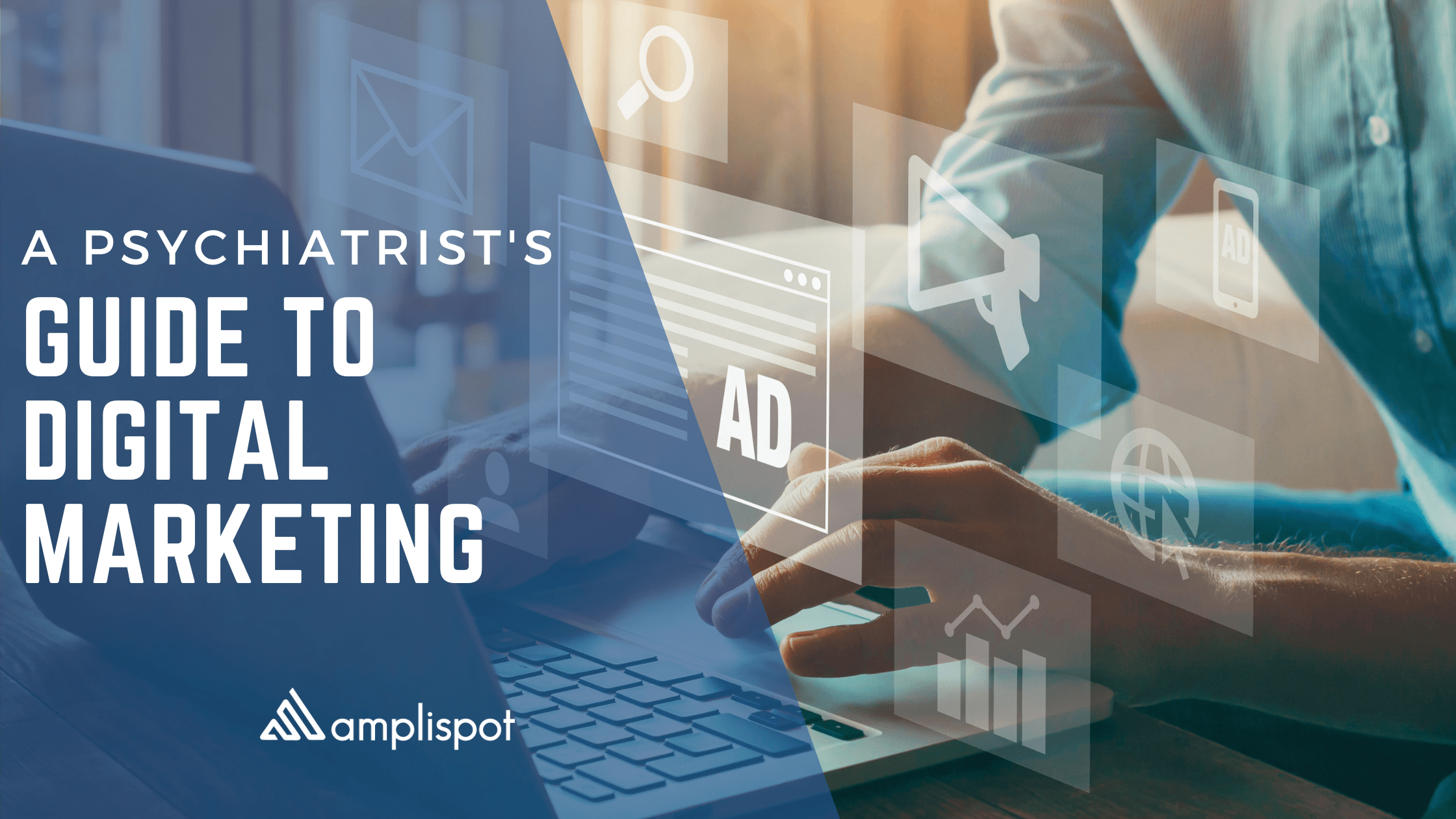Do you want to communicate with your customers online? Digital marketing allows you to deliver marketing messages directly to your ideal consumers on various platforms.
In this article, we’ll look at the many elements of digital marketing and how you may utilize them to generate qualified traffic for your organization.
What Is Digital Marketing?
Digital marketing uses internet technologies to market your business, brand, goods, or services to your target demographic via desktop computers, mobile devices, and Smart TVs. You may utilize several types of digital marketing, all of which we’ll go through in detail shortly.
Why Is Digital Marketing Important?
According to the 2021 Gartner Digital Marketing Survey, 70% or more of companies have met or exceeded a set of 2020 goals. However, this positive perspective may be due to performance against objectives modified midyear rather than established before the epidemic.
How Does Traditional Marketing Compare To Digital Marketing?
Is it more important to have a Facebook page for your business or a Twitter account? Traditional marketing includes radio, non-digital billboards, print publications, and offline events. Is it worth spending money on digital marketing over traditional marketing? Traditional marketing entails radio advertising, non-digital signage, printed publications, and offline events.
What Are The Different Types Of Digital Marketing?
Here are the many digital marketing firms and brands seeking to attract more consumers online.
Affiliate Marketing
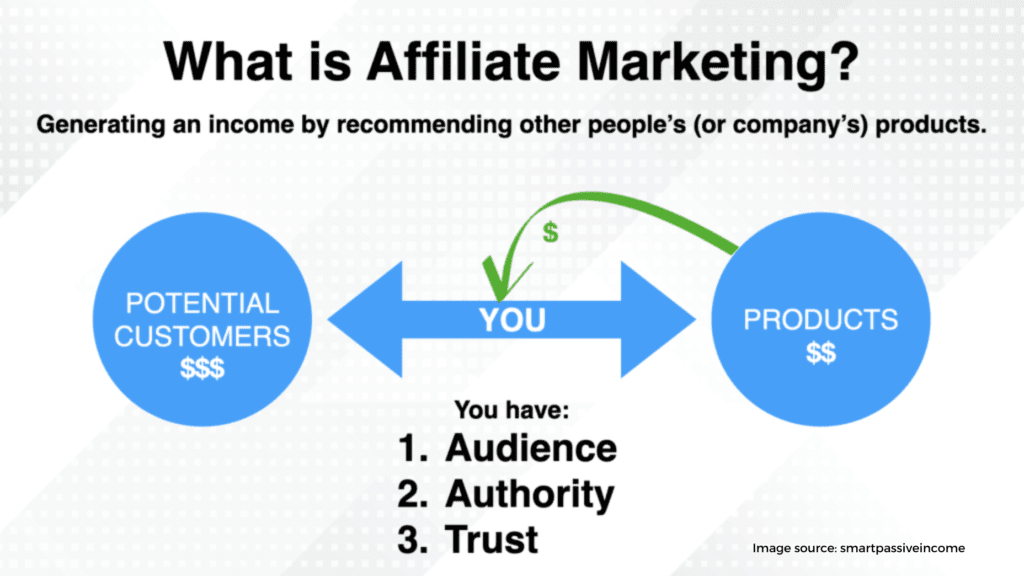
Through affiliate marketing, businesses may advertise their products through third-party publishers (affiliate marketers/affiliates) online. The advertiser usually provides each fellow with a customized referral URL (affiliate link) for their website content, blog articles, social media postings, and email messages.
An affiliate link is a type of online advertising that compensates an affiliate for any leads or purchases resulting from a user clicking on the link. According to data from PepperJam and Forrester, affiliate marketing was ranked as the top digital marketing channel for client acquisition in 2019.
This is a great marketing plan for psychiatrists who wish to turn consumers and fans into referral partners that may help the company grow.
Pro tip :
When patients come to you because of other mental health professionals, psychiatrists frequently acquire them as a result. Establishing your reputation as an honest and helpful peer may help you gain new patients.
Content Marketing
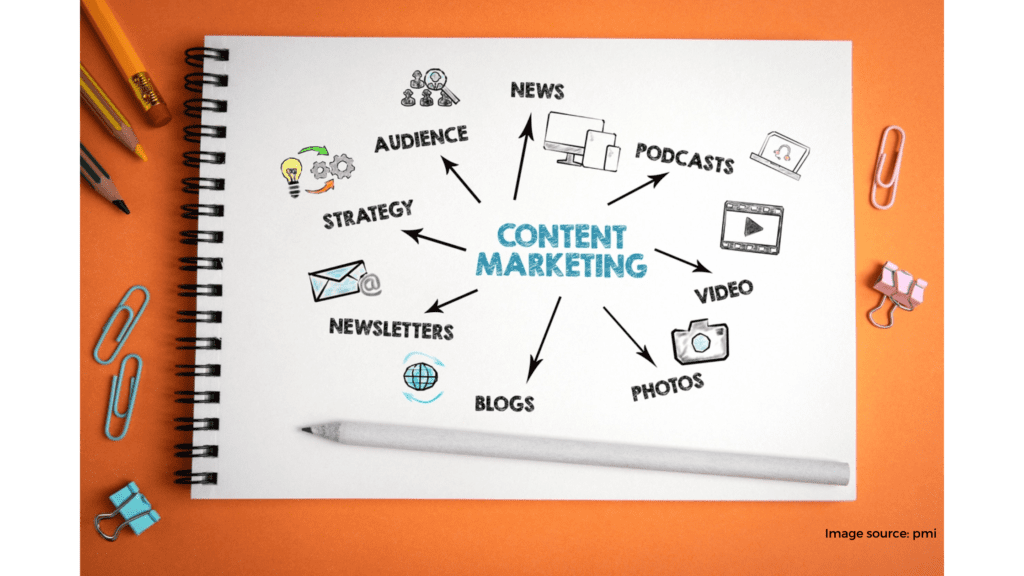
Content marketing is internet marketing that delivers content in many forms to new and prospective patients. For example, blog entries, knowledge base articles, support documentation, white papers, case studies, and other similar content resources are all types of content marketing.
According to Statista, the percentage of B2B and B2C content marketing budgets that will rise by 2021 is projected to be over 60%. Additionally, 69% of businesses said they would devote their budget to content creation and production. A well-designed content marketing plan provides your email, search, and social media marketing teams with resources for promoting and will help build your mental health business.
Email Marketing
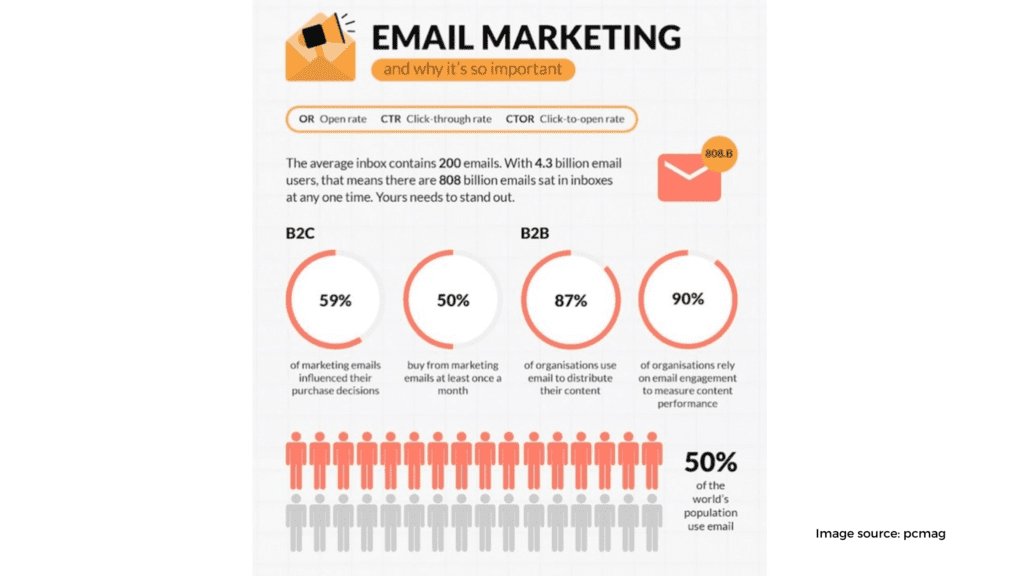
Email marketing enables companies to reach out to individuals who have consented to receive email communications. In addition, companies may collect emails on their websites, blogs, and social media sites. Create an online profile with a mental health marketing firm. These websites provide general information about mental health to the public and include lists of psychiatrists and therapists for consumers seeking mental health care.
According to research conducted by Litmus, companies may expect to get $42 for every dollar spent on email marketing. So use email marketing to hold people’s attention until they’re ready to purchase to increase the number of conversions from your website or blog.
It would be best to start by segmenting your email list according to demographics, interests, or customer loyalty. After that, you can create email campaigns with relevant content for each group. Finally, use A/B testing to improve the results of your email marketing campaigns over time.
Search Engine Optimization (SEO)
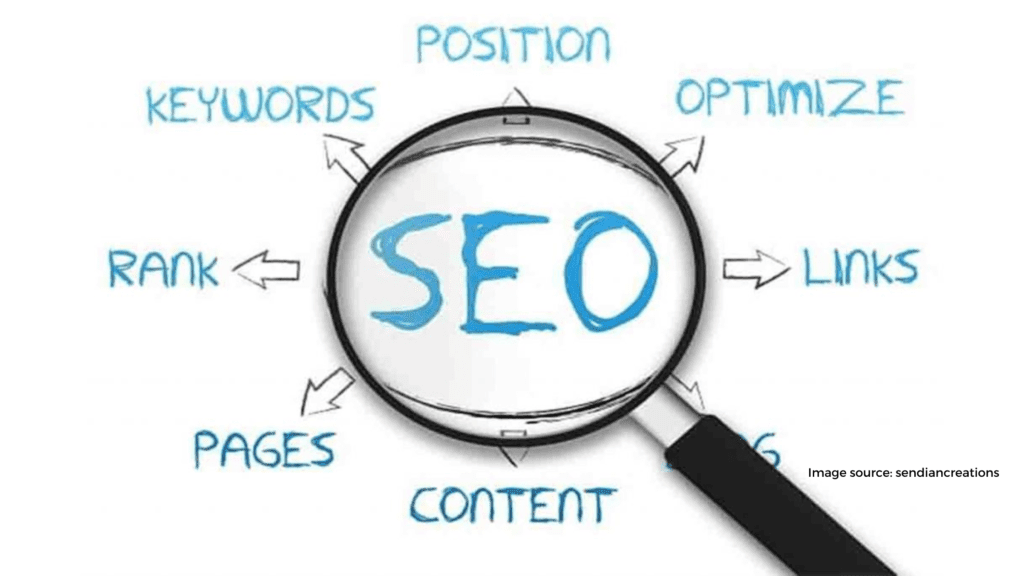
The process of optimizing a website for Google search is called Search Engine Optimization (SEO). It’s the art and science of making sure your website appears in relevant search results when people use Google and other engines to look for what you offer.
A successful SEO strategy includes keyword research, on-page optimization, backlinking, and content marketing. Moz found that, on average, companies that invest in SEO see a 25% higher click-through rate (CTR) than those that don’t.
When creating a digital marketing plan, consider the different types of digital marketing and how they can be used to achieve your goals. Also, keep in mind that it’s essential to constantly monitor and adjust your strategy as needed to get the most out of your digital
Pro tip:
The more high-quality traffic your company receives, the higher its results appear in Google and other search engines for “search queries.” To acquire this high-quality traffic, your sites must be highly ranked for search queries. In reality, out of all clicks (92%) on Google’s first page (first ten results), 92 percent occur there.
Influencer Marketing
Influencer marketing allows companies to reach additional people on social media by reaching out to popular social media users. Businesses collaborate with celebrities online to advertise items through sponsored and compensated collaboration postings.
According to the State of Influencer Marketing, sponsored content received an average of 7,806 impressions in 2020 (unique views). In 2019, sponsored postings acquired 4,827 images on average. A 57 percent rise [over 2019] was observed.
Influencer marketing can help a business reach out to a specific group of consumers and increase its visibility.
Mobile Marketing
On-site marketing is one of many forms of internet marketing. On the other hand, mobile marketing allows businesses to contact customers via their smartphones and other mobile gadgets. Mobile users may also be reached using SMS/text messaging advertisements tailored explicitly for them.
Mental health businesses can use podcast advertising to reach listeners on Spotify, Apple, and other platforms. Podcast ads, interviews, and the creation of a podcast about mental health industry themes are all options for brands to connect with customers.
Public Relations
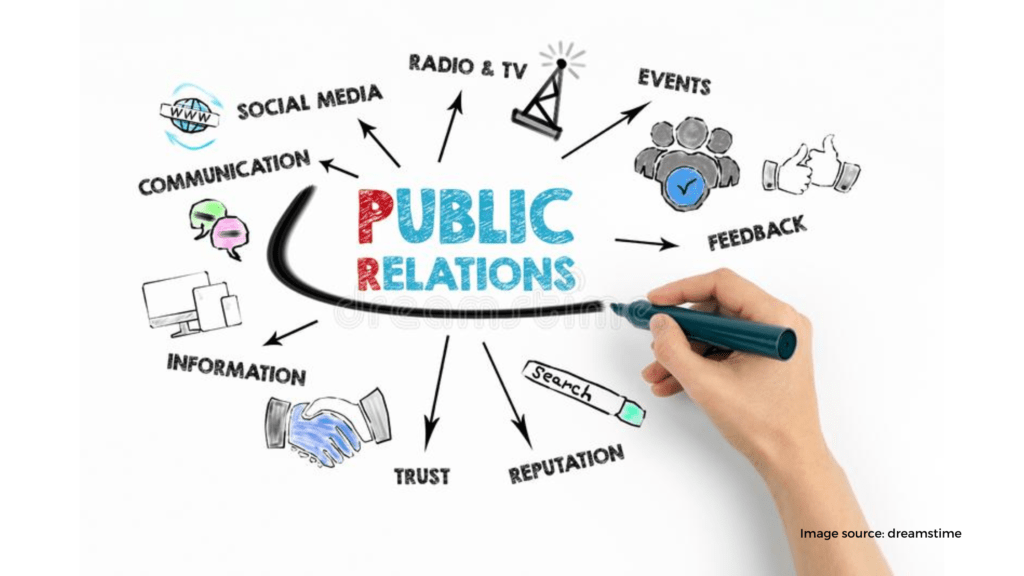
Businesses can increase exposure for their brand through the media by utilizing public relations marketing. PR aims to get journalists and influencers talking about your business, products, and mental health services.
The Global Public Relations Market Report predicts that the worldwide PR market will increase from $88.13 billion in 2020 to $97.13 billion in 2021. COVID-19’s impact is behind this expansion.
PPC (Pay-Per-Click Advertising)
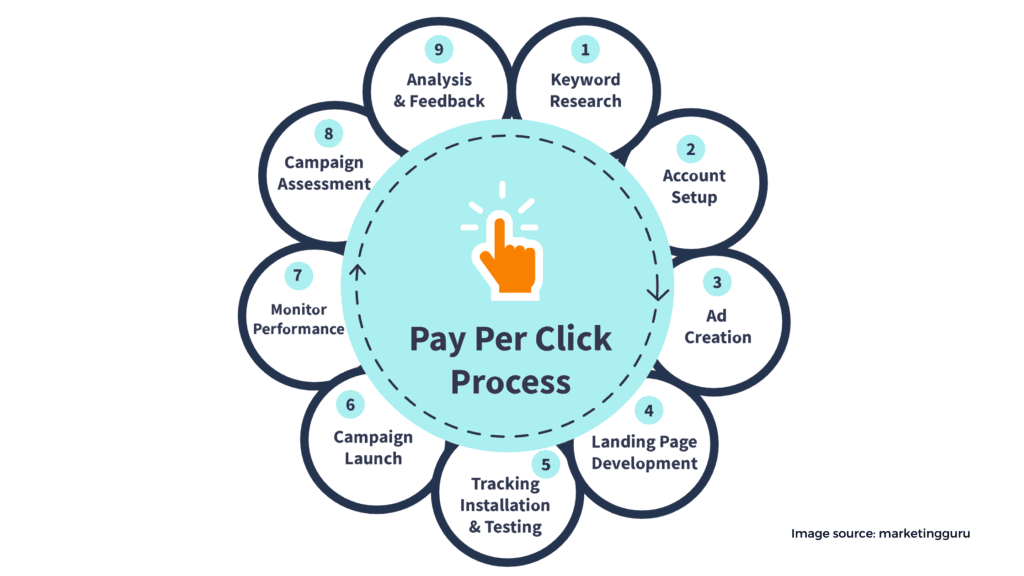
Many psychiatrists employ pay-per-click marketing. You may rank organically through SEO, but with PPC, you pay to be included in key phrases that are important to your company. Because you only pay when consumers click on your advertisements, a PPC campaign might be very successful.
When we say, “When a psychiatrist wants leads fast, or keywords are extremely competitive,” we usually advocate for a PPC approach. On the other hand, we urge firms to invest in SEO techniques because they represent one of the most intelligent internet marketing methods available over time.
Social Media Marketing
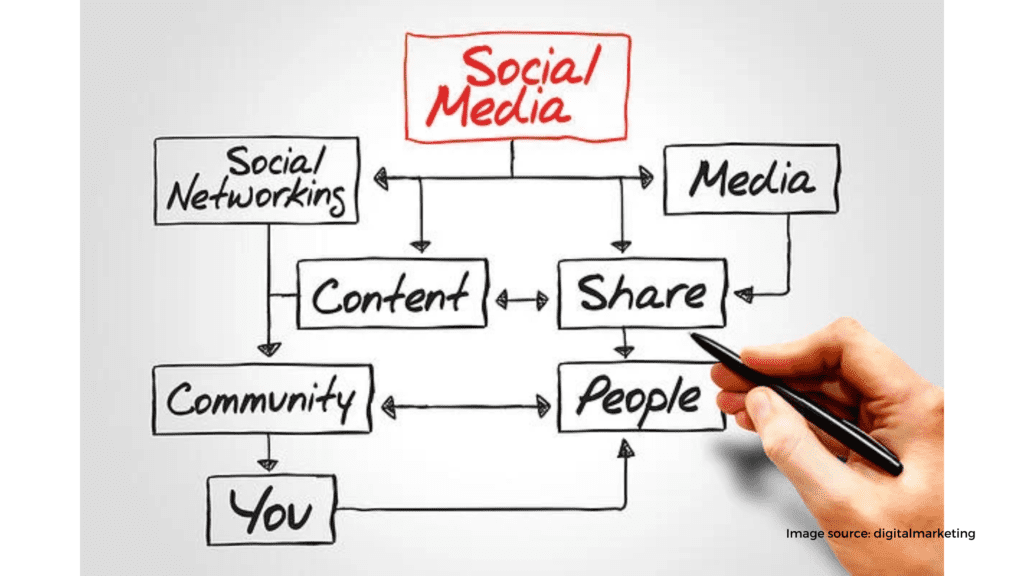
Consider the brands you like. If you’re on social media, you likely follow a handful of them. You prefer the content and advertising these companies produce to some random ad they might send you. This is because you are a loyal fan of theirs.
If you cultivate a following of fans on various social media platforms, you may replicate the same for your mental health practice. These individuals will share your material and purchase from you if you build up a following. Even negative comments about your company on social media might provide an excellent learning opportunity for your firm to grow. Long-term success is dependent on the reputation of your brand. A social media plan may assist your business in developing more pleasant interactions.
Website Design
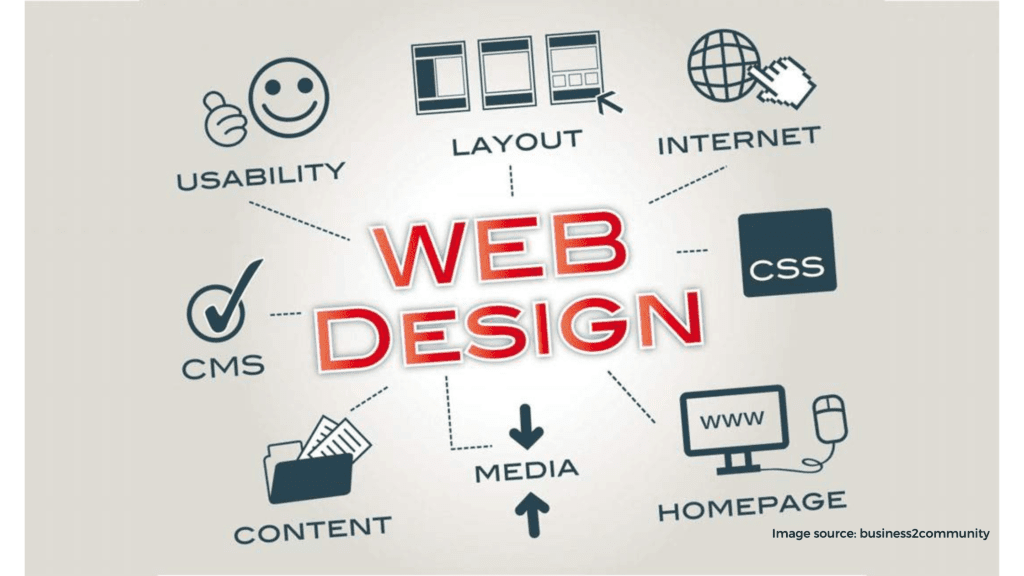
Your website is at the heart of everything your practice does online. Whether you’re marketing, developing an SEO strategy, creating email campaigns, or using social media tools, your website bridges the gap.
Your website design sets you apart from your competition and increases the trustworthiness of your organization. According to a study at Stanford University, 75% of consumers make credibility judgments about a company’s reputation based on their website’s appearance. Therefore, the creation of an excellent psychiatry practice website is crucial.
Streaming TV Marketing
Businesses may use streaming TV advertising to communicate with customers while watching their favorite television programs online. Ad platforms can provide customized targeting and measurement results thanks to digital streaming.
According to We Are Social’s Digital Report for 2021, 70 percent of internet users aged 16 to 64 across the world watch TV programming online. Are you ready to connect with those who have switched from traditional television to digital streaming?
Video Marketing
Psychiatrists may use video marketing to reach their consumers with video material. This is generally done using YouTube and other video hosting services.
According to the State of Video Marketing report by Wyzowl, 78 percent of video marketers believe that video increases sales. Eighty-three percent of video marketers claimed that video increases the average time spent on the site, and 86% said it boosts website traffic.
Fill your content library, promote it as a part of your link-building assets, and share it as part of your social media campaigns with video.
Voice Marketing
Businesses may use voice marketing to reach people who use voice-enabled services such as Alexa (Amazon), Siri (Apple), and Google Assistant. It also refers to live or prerecorded audio content on audio-only platforms like Spotify, Clubhouse, and Facebook Live Rooms.
Up to 45 percent of voice-enabled device users, according to the Narvar Consumer Report, use voice searches to shop. In addition, audio-only recordings can be utilized as supplementary material in your library, podcasts, and a variety of other things. With the following resources, you’ll discover how.
Conclusion
Digital marketing is an essential tool for psychiatrists to use when attempting to build their brand and business. It’s a cost-effective way to reach out to potential and current clients. Additionally, it allows you to track results and adjust your strategy as needed.
There isn’t any such thing as a one-size-fits-all approach to digital marketing; your plan will be determined by the specifics of your particular consumers, market space, rivals, goods or services, and other factors. But hopefully, this has given you some direction in developing your digital marketing strategy!

